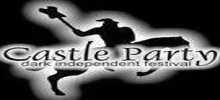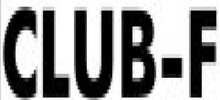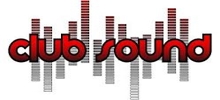Disco, short for discothèque, is a genre of dance music that emerged in the early 1970s from the United States' urban nightlife scene. It quickly became a global phenomenon, influencing fashion, culture, and dance styles. Disco music is characterized by its steady four-on-the-floor beats, off-beat hi-hats, and prominent use of basslines, synthesizers, and string sections.
The roots of disco can be traced back to the late 1960s and early 1970s, where it evolved from a mix of various musical styles including funk, soul, pop, and salsa. The genre gained popularity in dance clubs catering to African American, Latino, Italian American, LGBTQ+, and other communities in New York City and Philadelphia. These clubs provided a space for these communities to express themselves freely through dance and music.
Key elements of disco music include the use of drum machines and electronic instruments, which allowed producers to create complex rhythms and sounds. The genre often features catchy melodies and lyrics that celebrate love, romance, and hedonism. Disco songs typically have a tempo ranging from 100 to 130 beats per minute (bpm), making them perfect for dancing.
The fashion associated with disco is just as iconic as the music itself. Glittering outfits, platform shoes, and elaborate hairstyles were common among disco-goers. The genre also spawned a unique dance style known as "the hustle," which involved intricate footwork and partner moves.
Disco's popularity reached its peak in the mid-to-late 1970s with hits like the Bee Gees' "Stayin' Alive," Donna Summer's "I Feel Love," and Gloria Gaynor's "I Will Survive." These songs not only topped charts worldwide but also became anthems for a generation. The success of disco led to the establishment of disco-specific radio stations, television shows, and even movies like "Saturday Night Fever," which further popularized the genre.
However, by the late 1970s, disco began to face backlash due to its perceived commercialization and over-saturation in mainstream media. This culminated in events like the "Disco Demolition Night" at Comiskey Park in Chicago on July 12, 1979, where thousands of disco records were destroyed in a public display of anti-disco sentiment.
Despite this backlash, disco's influence can still be felt in modern music. Many contemporary genres such as house, techno, and electronic dance music (EDM) owe their origins to disco. Artists continue to sample and remix classic disco tracks, keeping the spirit of the genre alive. Additionally, disco has seen several revivals over the years, with new generations discovering and embracing its infectious rhythms and glamorous aesthetic.
In summary, disco is more than just a musical genre; it's a cultural movement that celebrated diversity, self-expression, and the joy of dancing. Its impact on music, fashion, and dance continues to be felt today, making it an enduring part of popular culture.
 3k
3k
 3
Germany, Berlin Disco 128 kbps MP3
3
Germany, Berlin Disco 128 kbps MP3 2.9k
2.9k
 3
Germany Disco 128 kbps MP3
3
Germany Disco 128 kbps MP3 One FM AzerbaijanOne FM Azerbaijan
One FM AzerbaijanOne FM Azerbaijan 2.1k
Azerbaijan Disco
2.1k
Azerbaijan Disco







































